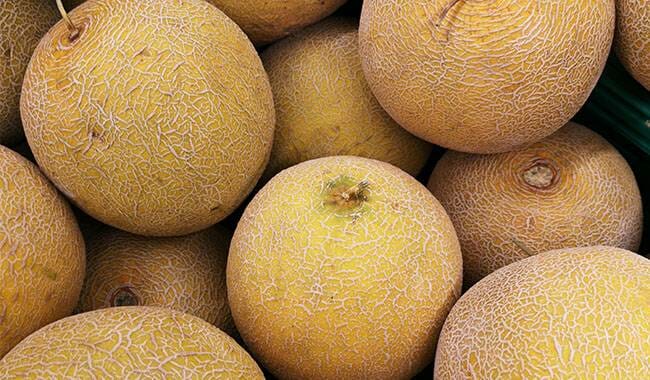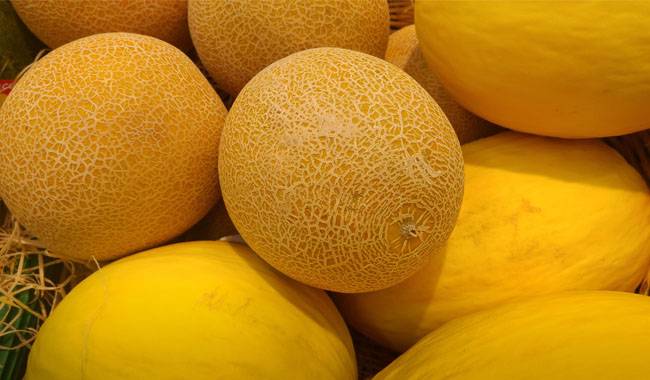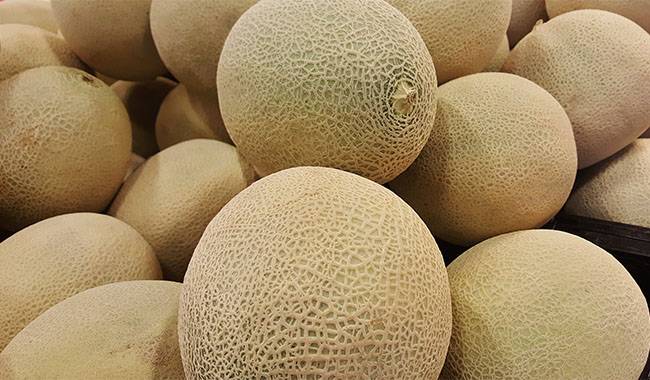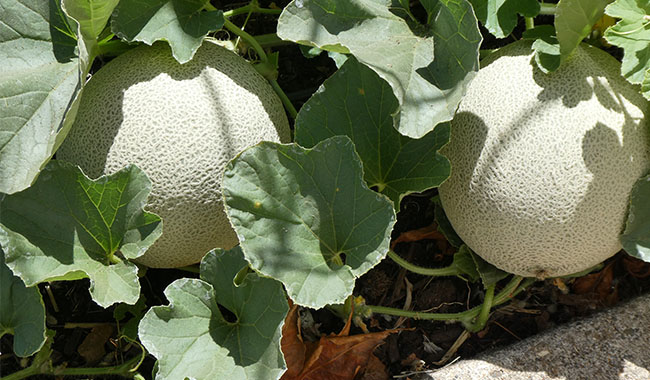
What are the benefits of cantaloupe?
Cantaloupe, called melon in ancient times. Cantaloupe has the reputation of “the king of melons” and its sugar content is about 15%. They have different shapes and unique flavors, some with creamy flavor, and some with a lemon scent, but they are all sweet and dense, and their scents are amazing, honoring the world.
Among many varieties of cantaloupe, the best quality cantaloupe is characterized by red flesh and yellow flesh. Cantaloupe is not only delicious but also rich in nutrients and has high medicinal value.
Cantaloupe can be eaten fresh, as well as dried cantaloupe, preserved cantaloupe, and cantaloupe juice. Cantaloupe seeds can be used as medicine to treat diseases, and cantaloupe peels can also promote weight gain when fed to livestock.
7 nutritional values of cantaloupe
Cantaloupe, cold in nature, sweet in taste, containing protein, dietary fiber, carotene, pectin, sugar, vitamin A, vitamin B, vitamin C, phosphorus, sodium, potassium, etc. Cantaloupe is sweet and delicious, with delicate flesh, and the closer the flesh is to the seed, the higher the sweetness, and the harder the skin is closer to it. Therefore, it is best to cut the skin thicker to taste more delicious.
1. High sugar content
The cantaloupe has the reputation of “the king of melons”. It has high sugar content, different shapes, unique flavor, some with creamy flavor, and some with a lemon scent, but they are sweet as honey and have a wonderful fragrance. They are well-known at home and abroad. . Among many varieties of cantaloupe, “Red Heart Crisp” and “Golden Dragon” have the best quality. Cantaloupe is not only delicious but also nutritious
2. Vitamins and minerals
The vitamin content in cantaloupe meat is not inferior to other fruits. In fresh cantaloupe flesh, the vitamin content is 4 to 7 times more than watermelon, 6 times higher than apples, and 1.3 times higher than apricots. These ingredients are conducive to the work of the human heart and liver and the activities of the intestinal system, promote endocrine and hematopoietic functions, and strengthen the digestive process.
It can meet the body’s daily needs of vitamin A and vitamin C, and provide other precious minerals. The rich B-complex vitamins also have good health effects. Vitamin C is beneficial to the human body against infectious diseases, and the mineral manganese can be used as a synergistic component of the antioxidant enzyme superoxide dismutase.
Its rich vitamin A is beneficial to maintain healthy skin, reduce the risk of cataracts, and improve vision. Vitamin A also includes the prevention of lung cancer and oral cancer. Cantaloupe can also be used as part of a pregnant woman’s diet. This fruit can relieve water retention and help the body eliminate excess sodium.
3. Folic acid
The folic acid in cantaloupe helps prevent neural tube defects in children. Therefore, understanding this knowledge can appropriately increase this fruit in the diet and help improve health.
4. Flavonoids
Cantaloupe is also rich in antioxidant flavonoids, such as zeaxanthin, which can protect our body and prevent a variety of cancers.
5. Iron
Compared with meat, the iron content in cantaloupe is twice that of the same amount of chicken, three times that of fish, and 17 times that of milk.
6. Potassium
Cantaloupe is also rich in potassium. Potassium protects the body, prevents coronary heart disease, and maintains a normal heart rate and blood pressure. Eating this fruit is also beneficial to reduce low-density lipoprotein and increase high-density lipoprotein. In addition, potassium also helps prevent muscle cramps and helps the body quickly recover from injury.
7. Bitter toxin
Modern medical research has found that the pedicles of cantaloupe and other melons contain bitter toxins, which have the effect of inducing emesis. It can stimulate the mucous membrane of the stomach wall and cause vomiting. Appropriate oral administration can be an emergency food poisoning without being absorbed by the stomach and intestines. Emetics.

The benefits of cantaloupe
The benefits of cantaloupe
1. Prevent disease
If you feel the tired, restless, or bad breath, eating cantaloupe can improve. Eating half a cantaloupe a day can supplement water-soluble vitamin C and B vitamins, which can ensure that the body maintains the needs of normal metabolism.
2. Help lose weight
Cantaloupe is the best fruit for weight loss. Cantaloupe contains very low calories and low-fat content, but it has a variety of nutrients required by the human body. Cantaloupe is cold in nature. It has the effects of improving bowel movement, replenishing qi, clearing lung heat, and relieving coughing. It is suitable for patients with kidney disease, anemia, constipation, stomach disease, and cough and sputum.
3. Tonic
Cantaloupe has a significant promoting effect on the human hematopoietic function, so it can be used as a food therapy for anemia. It can treat symptoms such as fever, heatstroke, thirst, urinary tract infection, sores in the mouth, and nose.
4. Cooldown
Cantaloupe has a sweet taste like honey and a wonderful fragrance. It has the reputation of “the king of melons” and is a good product for summer heat relief.
The cantaloupe pulp is good for urination, quenching thirst, eliminating irritating heat, preventing heatstroke, etc. Cantaloupe also has the effects of cooling and relieving heat, relieving irritating heat, promoting body fluid, and quenching thirst, so cantaloupe is a good product for relieving heat in summer.
5. Sun protection
A delicious cantaloupe is not only a good choice for people to cool off in summer, but it also has a special role. A farmer in France accidentally discovered that there is a kind of cantaloupe that is particularly good for people’s skin. It can prevent people’s delicate skin from being sunburned.
The orange-yellow color of cantaloupe flesh comes from carotene, a powerful antioxidant that can help you resist ultraviolet radiation and help maintain healthy skin. Therefore, eating one or two pieces of cantaloupe a day is very beneficial to skin care in summer.
Precautions
1. It is not advisable to eat too much cantaloupe to avoid causing diarrhea.
2. Diabetics and patients with renal failure eat cantaloupe carefully.
In renal failure, oliguria or anuria often occur clinically due to abnormal renal excretion and regulation. If there is oliguria, the potassium in the body cannot be discharged in time, so that too much potassium is retained in the body and cause hyperkalemia.
At this time, patients should be given a low potassium diet. If the daily urine output is greater than 1000 ml or blood potassium is normal, there is no need to limit potassium intake. For potassium-restricted diets, fruit juices should be avoided, and fruits and vegetables should be carefully selected. The potassium ion content in cantaloupe is quite high, and it is not suitable for patients with renal failure to eat when urinary is low.
3. People who suffer from beriberi, jaundice, abdominal distension, loose stools, cold cough and asthma, and postpartum and post-illness should not eat more; so pregnant women can eat cantaloupe appropriately during pregnancy, and don’t eat it after delivery.
Never buy cut cantaloupe. The US Food and Drug Administration found that 3.5% of cantaloupe had Salmonella in cracks in the epidermis, which could easily cause diarrhea.







